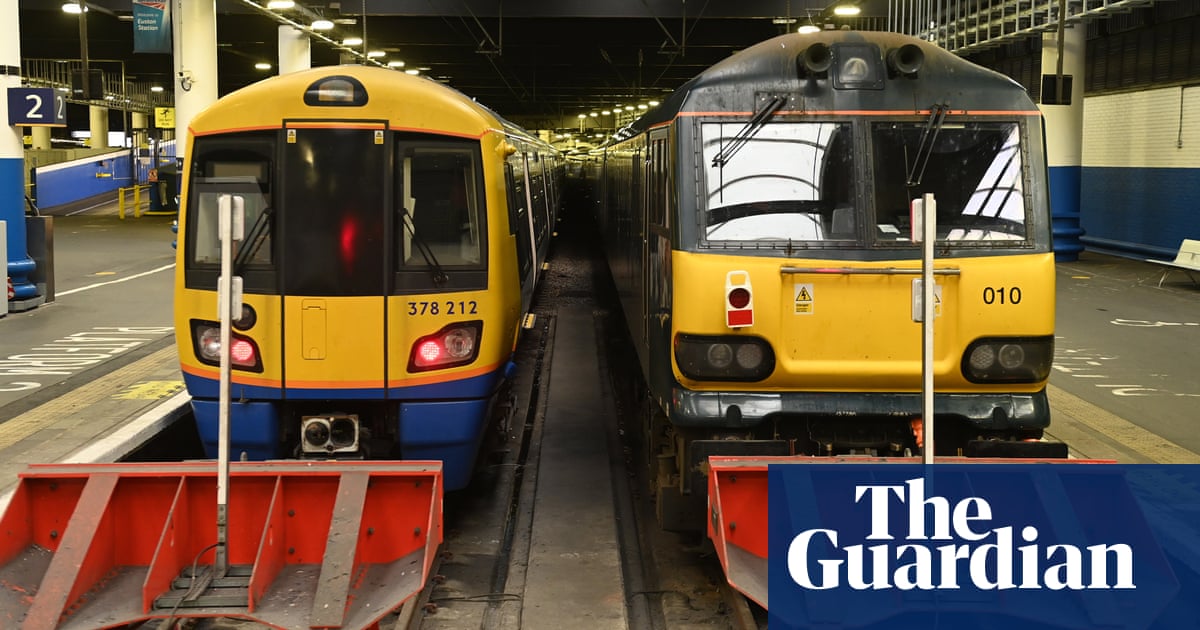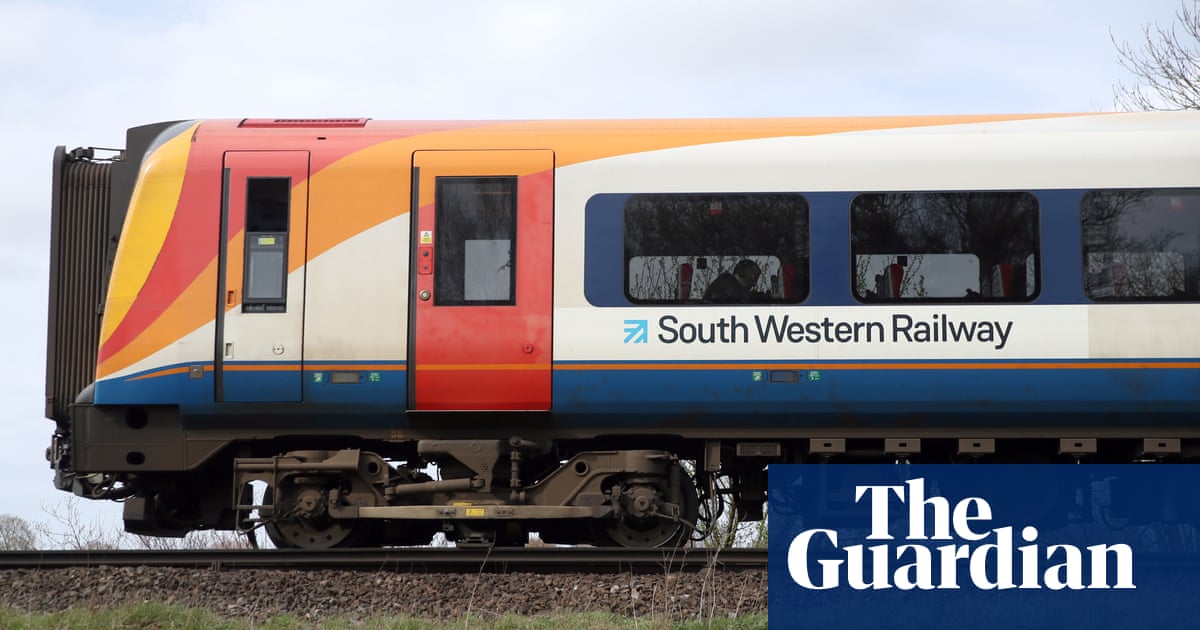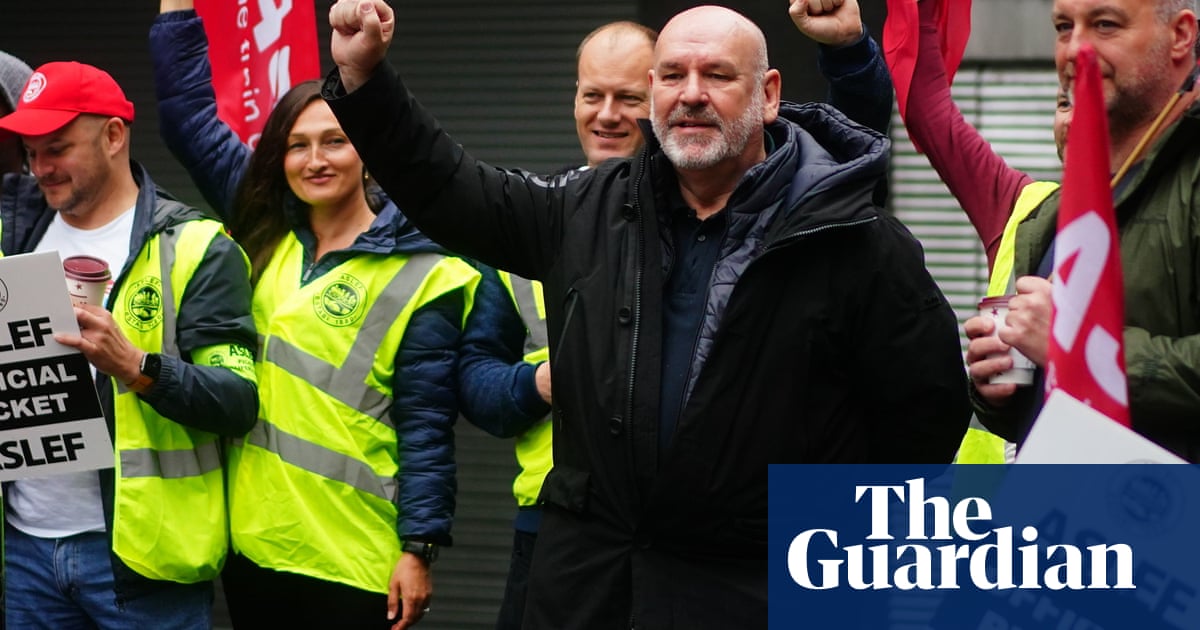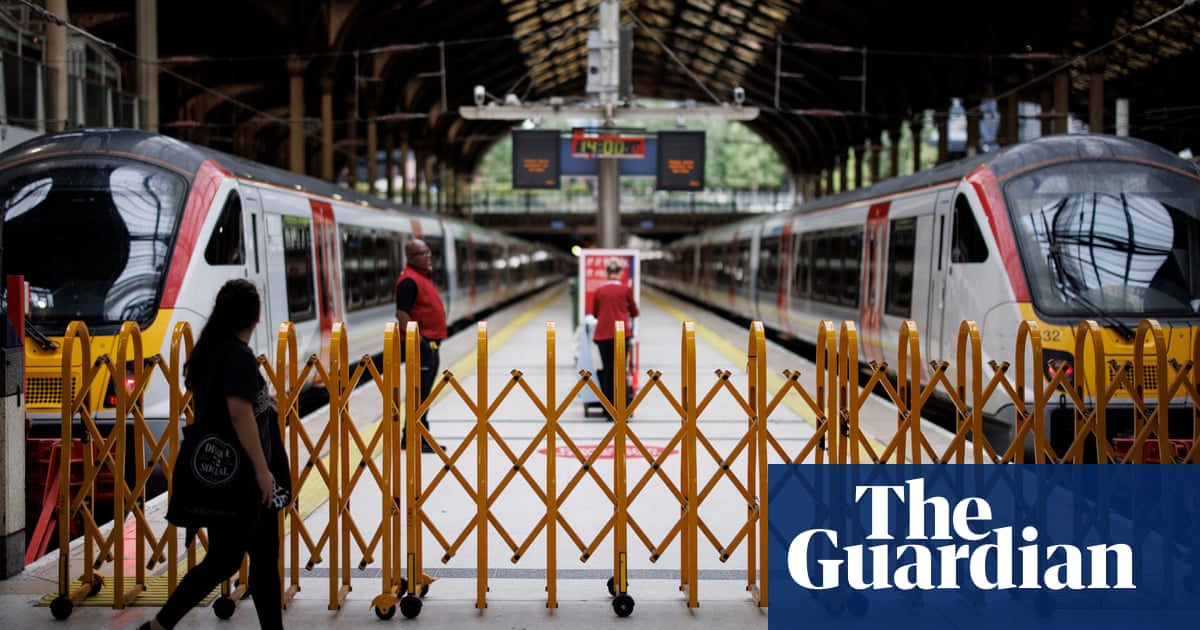
The train drivers’ union has dismissed as “tokenism” a pay offer reportedly being drawn up by the government before a new strike by its members on Thursday.
Mick Whelan, the general secretary of Aslef, said the union had received no offer nor entered fresh talks, but said a possible £2,000 rise reported in the Sun “would not fly”.
He said: “Inflation was running this year at 14%, we’ve had no pay rise for the previous two years, and they want industry reform for 3% – I don’t think that will fly with my members.”
Trains across Britain will be severely affected by the 24-hour strike by Aslef members at 15 train operators, sandwiched between two 48-hour strikes by RMT rail workers this week.
Whelan said he was due to have a first meeting with the rail minister, Huw Merriman, on Monday next week. “I hope he can move this on. But there is no offer that solves this tomorrow … People are misleading the public.”
Despite positive words from government about helping find a solution to the pay dispute, Whelan said the transport secretary, Mark Harper, had been “economical with the truth” about talks with the RMT before Christmas, “when they had a deal … and someone put other clauses into it”.
He said: “It’s clear it must have been the government and they haven’t been honest or transparent about it – it doesn’t give us great hope.
“I imagine that [the reported offer] is going to include some of our red lines. I think it’s tokenism if he does that.”
Government sources said an announcement would be made within days about a further legislative crackdown on industrial action – though stopped short of committing that the new law would be introduced next week when parliament returns.
Speaking on Wednesday, Sunak said “the right to strike has to be balanced with the right of the British public to be able to go about their lives without suffering completely undue disruption” and said new laws would restore the balance.
Government sources are most optimistic that a deal can be struck with rail workers, though waves of strikes are forthcoming across other sectors including the NHS where there is much less chance of a deal.
The legislation being looked at by Sunak would extend plans already announced by ministers to enforce minimum service levels on public transport, which could be extended across all public services. There are also likely to be tougher thresholds introduced for industrial action to take place.
Even if the legislation is brought before the House of Commons next week, it is highly unlikely to be in place before the summer because of anticipated delays in the Commons as well as the House of Lords – and then the law is likely to be challenged by unions in court.
The Aslef leader said the government had “trapped themselves into a cycle of dysfunction, they’re battling on so many fronts – from the civil service to the NHS, the fire brigade and lecturers, the driving examiners to the railway – they don’t dare offer a reasonable way out because of the domino effect it will have elsewhere.”
Train drivers had been “treated with contempt”, he said, adding: “We don’t work for the government, we work for employers like First Group who don’t factor in pay rises before they decide to pay dividends to shareholders.”
Referring to the government’s announcement last spring that the railways would be relaunched and rebranded, Whelan said: “‘Great British Railways’ doesn’t exist. They’ve created a mess that is getting larger and messier and cheapskating their way out of it isn’t going to be a solution.”
According to Aslef, train operators have been paying managers £400-£500 a day on top of their normal salary to step in and drive trains when staff have been striking or unavailable on rest days. “They can find money to pay their shareholders, or for other people to drive trains, they just can’t find it for train drivers.”
A Rail Delivery Group spokesperson, representing train operators, said: “Our priority is to run as many passenger services as possible during the strikes. If people work an additional shift and have had the necessary training to be able to do the job safely, they will be paid the appropriate overtime rate which will vary from train operator.”
Whelan said he would “like to solve this before I retire” in three years, but warned the dispute would end only when someone was “brave enough to take the shackles off the industry, or to make an offer that recognises the high cost of inflation”.
He said: “The reality is that pay isn’t driving inflation … It’s profiteering and the economic illiteracy of austerity, and Brexit. I don’t see a way to get the economy going again without pay rises.”
Thursday’s action will be the drivers’ sixth coordinated strike since last summer. Whelan said: “We don’t want to be on the picket lines, we don’t want to be losing money, we don’t want to be hurting the travelling public, but we’ve been given no alternative by the actions of the government and the industry.”
A Department for Transport spokesperson said: “Passengers have rightly had enough of rail strikes and want the disruption to end. Unions should step back from this strike action so we can start 2023 by ending this damaging dispute.”
The drivers’ strike on Thursday will stop all trains run by main operators, including: Avanti West Coast; Chiltern; CrossCountry; East Midlands; Govia Thameslink Railway – comprising Great Northern, Thameslink, Southern and Gatwick Express services; Northern; Southeastern; TransPennine Express; and West Midlands Trains.
A limited service will run on Great Western Railway, Greater Anglia and LNER, while South Western services including the Island Line will be significantly disrupted.
Intercity trains to Scotland and Wales will be severely limited but services operated by Scotrail and Transport for Wales will run, albeit with early disruption as the RMT action at Network Rail comes to an end.












